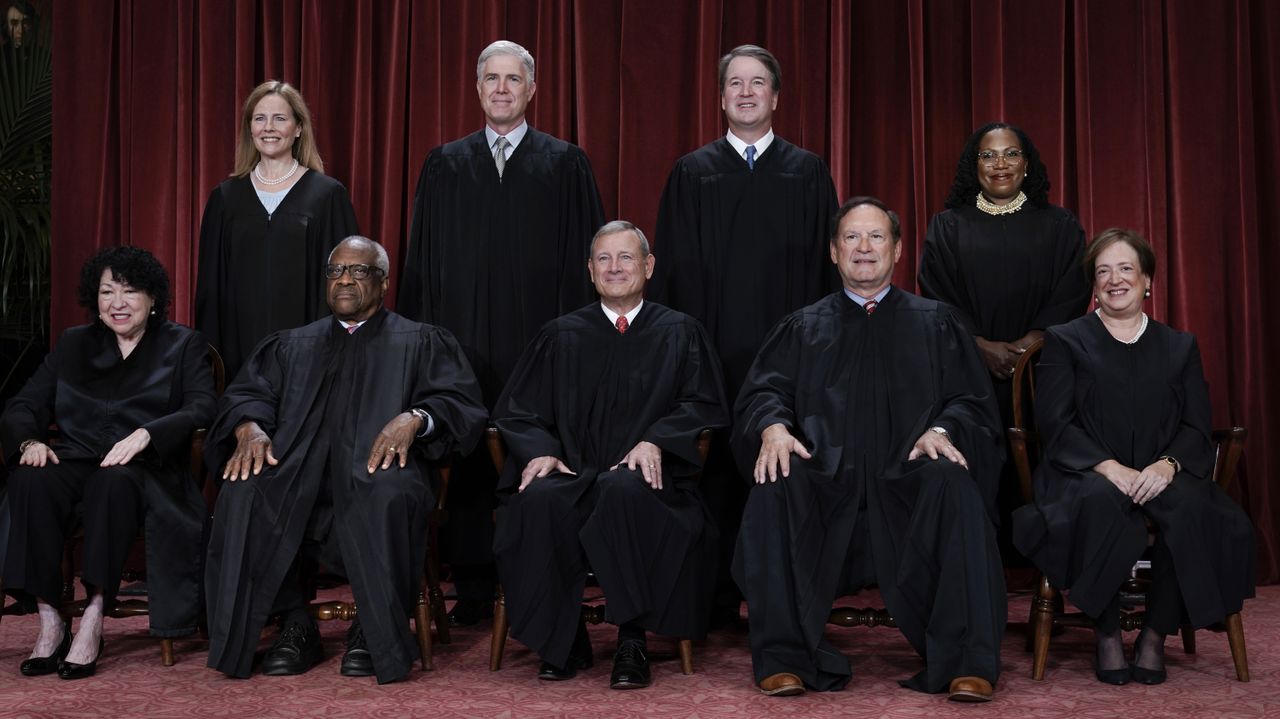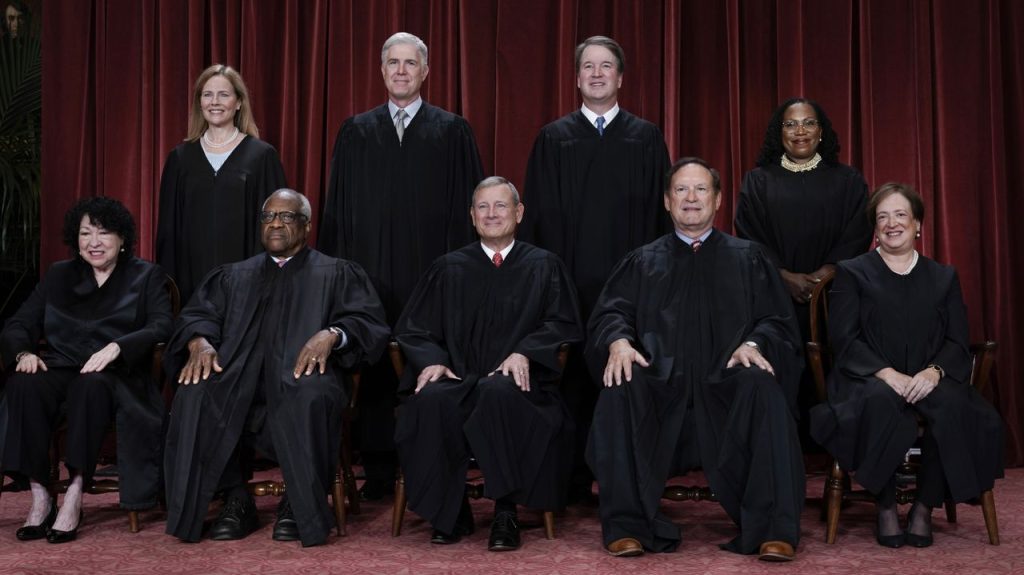
Right-wing Supreme Court majority conspires with billionaires to undermine federal regulations
By John Burton.
At Wednesday morning’s oral argument, the right-wing supermajority of the US Supreme Court signaled that it will be dismantling 40 years of case law requiring federal judges to defer to the actions of regulatory agencies that were established by Congress and staffed by the executive branch.
The decision will call into question, to cite just a few examples, nationwide regulations affecting the environment, labor relations, natural resources, consumer products, the economy and financial markets, construction and infrastructure safety, immigration, civil rights, communications, food and drugs, health care and education.
The decision, expected this June, will subject over 400 federal agencies and subagencies to a barrage of lawsuits based on the Supreme Court’s repealing the current bedrock requirement that federal courts must uphold regulations that are “based on a permissible construction” of the enabling congressional statute.
Individual judges, many of whom are reactionaries staffing remote courts to whom cases can be deliberately steered by well-financed litigants, will have virtually unrestrained power to second-guess technical experts and quash rules that threaten the profits of major corporations and their owners.

The result will, by design, kneecap the entire regulatory structure in the United States, with hundreds of federal judges rendering conflicting interpretations of federal laws, and the arch-reactionary Supreme Court as the final arbiter.
A little background: Emerging from the Great Depression and world war as the planet’s dominant economic force, the US government found it increasingly necessary to control the production and exchange of commodities through an expanding network of federal agencies, which in turn promulgate rules and regulations. The major corporations, of course, bristled at any restriction on their ability to churn profits. Patchwork standards for court review evolved until the Supreme Court settled the question in 1984’s Chevron v. National Resources Defense Council.
Chevron holds, unanimously, that where the Act of Congress itself does not resolve a specific issue, “the question for the court is whether the agency’s answer is based on a permissible construction of the statute,” a rule that defers to the judgment of the regulatory agency in most cases. Chevron has been cited more than any other Supreme Court decision over the last 40 years, about 18,500 times, including 70 in the Supreme Court, generally to preclude challenges to regulations.
Chevron was decided during a period when most challenges were filed by public interest groups opposing the Reagan administration’s rollback of regulatory protections. Chevron was praised by the late reactionary Justice Antonin Scalia because it “accurately reflects the reality of government.”
Case in point: The regulation challenged in Chevron was one that loosened air pollution standards. Ironically, that regulation was promulgated by Anne Gorsuch, Reagan’s EPA administrator at the time. She is the mother of Justice Neil Gorsuch, who denounced Chevron Wednesday.
Times have changed, and now most challenges are filed by major corporations to remove roadblocks from their accumulation of profits. Relentless, Inc. v. Department of Commerce, the case argued Wednesday, is not one of those cases, however. It is the concoction of “Americans for Prosperity,” a political action committee linked to Koch Industries, a major petrochemical firm that is the second largest privately held company in the United States.
Americans for Prosperity’s stooge “public interest” law firm, Cause of Action, recruited an atypical, somewhat sympathetic test case involving small New Jersey and Rhode Island fishing businesses to challenge Chevron in the Supreme Court.
The National Marine Fishery Services required each herring boat to carry an observer, who tallied catches to prevent overfishing. In 2020 the agency enacted a regulation requiring that the operators pay for the observer, about $700 a day.
Cause of Action has had two cash infusions indirectly from Koch Industries, including more than $4 million in 2019 and $1.1 million in 2020. In its most recent tax filing, covering the time when the fishing case was being litigated, the group reported having no employees. The case is being prosecuted by lawyers who work for Americans for Prosperity and are linked to Koch Industries.
Clarence Thomas reinforced Chevron in a 2005 ruling known as Brand X. After being flown by private jet to secretly attend a 2018 Koch Industries “summit” in Palm Springs, however, Thomas flipped 180 degrees. He explicitly renounced his earlier ruling in a brief 2020 dissent to a denial of review, stating, “Although I authored Brand X, it is never too late to surrender former views to a better considered position.” Perhaps Thomas should have written “a better paying position,” that would have been more accurate.
In any event, the well-connected Koch lawyers navigated the herring fishermen to the Supreme Court docket, where Thomas and the other right-wing justices selected their case as the best vessel to get rid of Chevron, instead of one of the hundreds of petitions with far higher stakes filed by major corporations.
Not surprisingly, fishing observers and herring went virtually unmentioned at Wednesday’s argument. That was not what the case was about. Gorsuch and Thomas, joined by justices Bret Kavanaugh and Samuel Alito, left no doubt where they stood. The positions of Amy Coney Barrett and Chief Justice John Roberts were less clear, but they will no doubt vote with the other four to gut Chevron, if not overrule it entirely.
As expected, the three moderate justices, Elena Kagan, Sonia Sotomayor and Ketanji Brown Jackson, defended Chevron through their questioning. None dared point out, however, that the case in front of them was a stalking horse for billionaires and corporate interests intent on dismantling any obstacle to the further accumulation of wealth, regardless of the social costs.
With the impending demise of Chevron, federal agencies will no longer be able to regulate businesses and commerce effectively, turning the clock back to the wide open practices that culminated in the 1929 stock market crash and ensuing Great Depression.
[This article was originally published by WSWS here on January 18, 2024]

